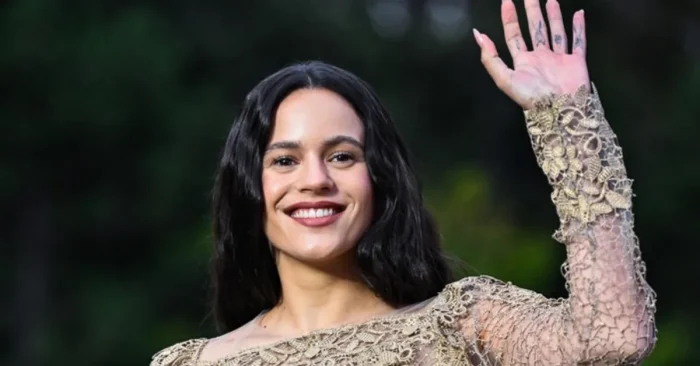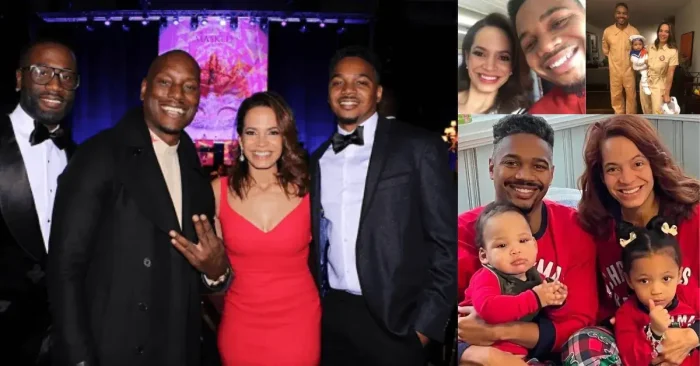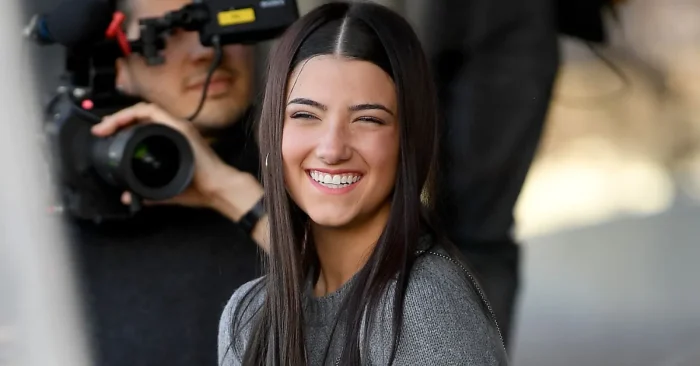Rosalía – Biography
Early Life and Background
Rosalía Vila Tobella was born on September 25, 1992, in Sant Cugat del Vallès, a town near Barcelona, Spain. She grew up in a culturally rich environment that nurtured her early interest in music. From a young age, Rosalía was drawn to flamenco, an art form deeply rooted in Spanish tradition. She began formal training at age 13, studying flamenco under the renowned teacher Chiqui de La Línea. Her academic path led her to the Catalonia College of Music, where she focused her studies on flamenco singing. Rosalía’s early immersion in the flamenco world laid the foundation for her future experimentation with the genre. She combined her classical training with a modern sensibility, blending traditional roots with contemporary influences.
Entry Into Music and Early Career
Rosalía’s early career was defined by her dedication to flamenco and her collaborations with other Spanish artists. She initially gained recognition for her work with musician Raül Refree, with whom she released her debut album “Los Ángeles” in 2017. The project was a stark, minimalist take on flamenco and received critical acclaim for its emotional depth and raw vocal delivery. Although it did not achieve mainstream success, the album established Rosalía as a serious talent in the Spanish music scene. She also appeared in television performances and musical festivals, building a grassroots following through her powerful voice and emotional authenticity.
Breakthrough and Global Success
Rosalía’s breakthrough came with her second studio album, “El Mal Querer,” released in 2018. The album fused flamenco with reggaeton, trap, and electronic elements, pushing the boundaries of genre and language. Inspired by a 13th-century Spanish novel, the album told a conceptual story of love and liberation. Hit singles like “Malamente” and “Pienso en tu Mirá” received both commercial success and critical praise. “El Mal Querer” won multiple Latin Grammy Awards and propelled Rosalía to international fame. Her unique blend of traditional Spanish music with urban sounds captured a global audience, making her one of the most influential artists of her generation.
Musical Style and Artistic Identity
Rosalía is known for her ability to blend genres seamlessly, creating a sound that is both deeply rooted in flamenco and refreshingly modern. Her music incorporates reggaeton, hip-hop, R&B, and electronic production while maintaining the emotive vocal expression characteristic of flamenco. She often combines experimental beats with traditional hand claps and Spanish guitar. Visually, Rosalía draws from high fashion, street culture, and classical Spanish aesthetics, crafting a bold and distinctive image. Her lyrics often explore themes of love, power, heartbreak, and femininity, delivered with emotional intensity and poetic flair. Her artistic vision has positioned her as a leader in redefining contemporary Latin and global pop music.
International Collaborations and Achievements
Since her rise to fame, Rosalía has collaborated with some of the world’s most prominent artists, including Billie Eilish, Travis Scott, Bad Bunny, and The Weeknd. These collaborations have broadened her reach and showcased her versatility across musical styles. In 2022, she released “Motomami,” an experimental and genre-blending album that further pushed artistic boundaries. “Motomami” was praised for its innovation and received widespread critical acclaim. Rosalía has performed at major festivals such as Coachella and Lollapalooza and won numerous awards, including several Latin Grammys and a Grammy Award. Her global influence continues to grow, bridging cultural gaps and expanding the possibilities of Spanish-language music on the international stage.
Personal Life and Influence
Rosalía is known for her fierce independence, creative control, and strong sense of identity. She has often spoken about the importance of honoring flamenco traditions while making space for innovation. Though she maintains a relatively private personal life, her relationship with singer Rauw Alejandro attracted public attention and further spotlighted her cultural influence. Rosalía’s success has opened doors for other non-English-speaking artists to break into global markets. As a Spanish woman excelling in a traditionally male-dominated flamenco world and a competitive pop industry, she has become a role model for aspiring musicians worldwide. Her work not only entertains but also challenges and redefines industry norms.
Conclusion
Rosalía has emerged as one of the most dynamic and visionary artists in global music. With her roots in flamenco and her fearless experimentation with modern genres, she has crafted a unique artistic identity that resonates worldwide. Her success reflects a powerful blend of tradition and innovation, as well as a commitment to authenticity. Whether through her award-winning albums, high-profile collaborations, or genre-defying performances, Rosalía continues to influence the future of pop music. She stands as a cultural bridge, elevating Spanish music on a global scale while inspiring a new generation of artists to blend heritage with creativity.
Frequently Asked Questions (FAQs)
What is Rosalía known for?
Rosalía is known for blending traditional flamenco with modern genres like reggaeton, trap, and electronic music, especially in her album “El Mal Querer.”
Where is Rosalía from?
Rosalía is from Sant Cugat del Vallès, near Barcelona, Spain.
Has Rosalía won any major awards?
Yes, she has won several Latin Grammy Awards, a Grammy Award, and other international honors for her music and innovation.
What is “Motomami”?
“Motomami” is Rosalía’s 2022 album that features a wide range of musical styles and received critical acclaim for its experimental approach.
Is Rosalía involved in activism?
While not overtly political, Rosalía often advocates for artistic freedom, female empowerment, and cultural preservation through her music and interviews.






